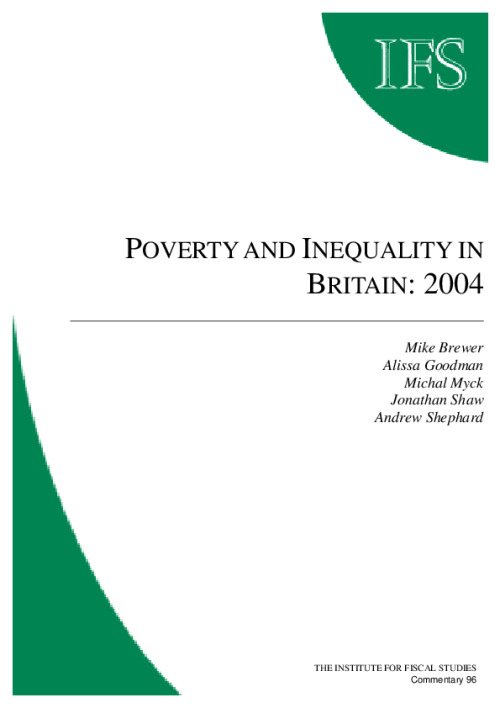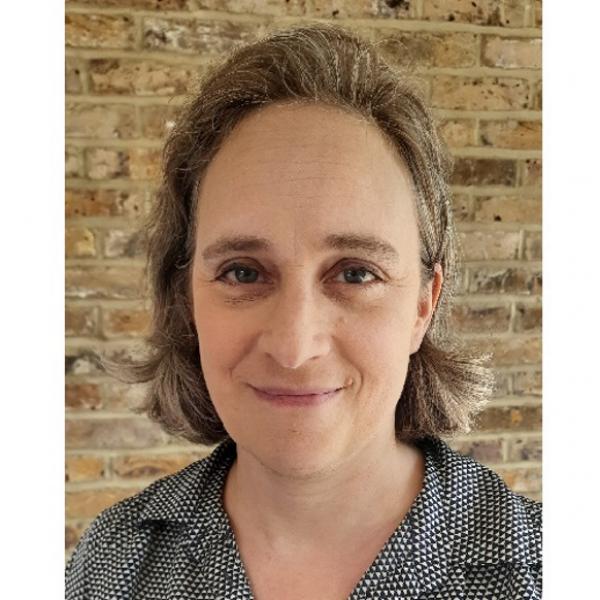Downloads

comm96.pdf
PDF | 580.89 KB
This Commentary presents a detailed analysis of the latest figures and recent trends. It assesses: what has been happening to the gap between rich and poor in Britain; what impact Labour's policies have had on inequality since 1997; how labour's record stacks up to that of previous governments; how close the government is to meeting its child poverty targets; the latest trends in pensioner poverty; what has happened to poverty amongst groups less favoured by government tax and benefit policies. In addition, the commentary considers the government's new child poverty measure, announced in December 2003. It asks how poverty has changed on this new definition and what targets the government might set to pursue its goals of eliminating child and pensioner poverty.
Click here to access data on living standards, poverty and inequality since 1961 and to view our other annual reports on the topic.
Authors

Mike Brewer

Research Fellow University College London
Alissa is an IFS Research Fellow and a Professor of Economics and Director of the Centre for Longitudinal Studies at the UCL Institute of Education.

Michal Myck

Research Associate University of Pennsylvania
Andrew is a Research Associate at the IFS and an Associate Professor of Economics at the University of Pennsylvania.

Research Fellow Financial Conduct Authority
Jonathan is a Research Fellow at the IFS and a Technical Specialist in the Economics Department at the Financial Conduct Authority.
Report details
- DOI
- 10.1920/co.ifs.2004.0096
- ISBN
- 978-1-903274-37-8
- Publisher
- IFS
Suggested citation
Brewer, M et al. (2004). Poverty and inequality in Britain: 2004. London: IFS. Available at: https://ifs.org.uk/publications/poverty-and-inequality-britain-2004 (accessed: 30 June 2024).
More from IFS
Understand this issue

Sure Start achieved its aims, then we threw it away
15 April 2024

Social mobility and wealth
12 December 2023

How important is the Bank of Mum and Dad?
15 December 2023
Policy analysis

How do the last five years measure up on levelling up?
19 June 2024

The two-child limit: poverty, incentives and cost
17 June 2024

Pensions: five key decisions for the next government
7 June 2024
Academic research

Income inequality in Ireland, 1987–2019
28 June 2024

Components of the evolution of income inequality in Sweden, 1990–2021
28 June 2024

The intergenerational elasticity of earnings: Exploring the mechanisms
3 June 2024